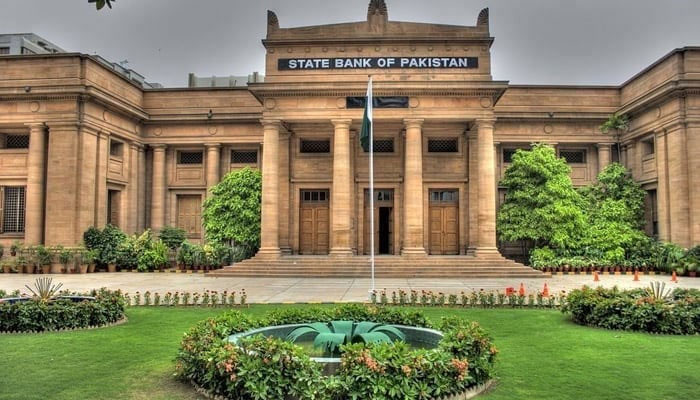SBP increases clean lending limit for SMEs to Rs10 million
KARACHI: The State Bank of Pakistan increased the clean lending limit for small and medium enterprises (SMEs) to Rs10 million on Friday, aiming to facilitate access to finance for this sector.
Accordingly, it has amended the prudential regulations for SME financing.“Banks & DFIs can take clean exposure (facilities extended based on cashflows of an SME secured solely against personal guarantees) of up to Rs10 million on an SME borrower,” the SBP said in a circular.
“It may be noted that the clean exposure limit shall not include the clean consumer financing limits (credit card and personal loans, etc) allowed to a sponsor of the said SME under prudential regulations for consumer financing.”
Previously, the clean lending limit for SMEs was Rs5 million.The SBP has instructed banks and development finance institutions (DFIs) to ensure that the recent amendment is circulated to all their offices and branches for strict compliance. Non-compliance with prudential regulations will result in punitive action under the relevant provisions of the Banking Companies Ordinance, 1962.
The SBP has urged all banks and DFIs to prepare a comprehensive SME specific credit policy, approved by their boards of directors, to enhance financing to the SME sector. The credit policy should specifically address financing for small enterprises while considering their specific characteristics and business conditions.
As part of its Vision 2028, the SBP has set a goal to double SME financing to Rs1.1 trillion over the next five years. This includes adding Rs100 billion to the outstanding portfolio for SMEs by the end of June 2025.
The SME sector contributes significantly to national GDP, employment generation, and export earnings. Hence, the impact of financial inclusion of SMEs has important implications for economic growth, competitiveness, and job creation.
The potential for this sector to contribute to the economic development objectives of Pakistan, in areas like creating jobs, increasing incomes, improving competitiveness, boosting exports, and fostering economic growth is the justification for a strategy of support to unleash the sector’s potential.
-
 James Van Der Beek's Quiet Sacrifice Before Death Comes To Light
James Van Der Beek's Quiet Sacrifice Before Death Comes To Light -
 Suspect Kills Six Across Florida Before Taking His Own Life
Suspect Kills Six Across Florida Before Taking His Own Life -
 AI Helps Researchers Identify 2,000-year-old Roman Board Game Stone
AI Helps Researchers Identify 2,000-year-old Roman Board Game Stone -
 Inside Kate Middleton, Prince William’s Nightmare Facing Andrew Mountbatten-Windsor
Inside Kate Middleton, Prince William’s Nightmare Facing Andrew Mountbatten-Windsor -
 Margaret Qualley Shares Heartfelt Confession About Husband Jack Antonoff: 'My Person'
Margaret Qualley Shares Heartfelt Confession About Husband Jack Antonoff: 'My Person' -
 Savannah Guthrie Shares Sweet Childhood Video With Missing Mom Nancy: Watch
Savannah Guthrie Shares Sweet Childhood Video With Missing Mom Nancy: Watch -
 Over $1.5 Million Raised To Support Van Der Beek's Family
Over $1.5 Million Raised To Support Van Der Beek's Family -
 Paul Anthony Kelly Opens Up On 'nervousness' Of Playing JFK Jr.
Paul Anthony Kelly Opens Up On 'nervousness' Of Playing JFK Jr. -
 Diana Once Used Salad Dressing As A Weapon Against Charles: Inside Their Fight From A Staffers Eyes
Diana Once Used Salad Dressing As A Weapon Against Charles: Inside Their Fight From A Staffers Eyes -
 Video Of Brad Pitt, Tom Cruise 'fighting' Over Epstein Shocks Hollywood Fans
Video Of Brad Pitt, Tom Cruise 'fighting' Over Epstein Shocks Hollywood Fans -
 Jelly Roll's Wife Bunnie Xo Talks About His Huge Weight Loss
Jelly Roll's Wife Bunnie Xo Talks About His Huge Weight Loss -
 Margot Robbie Reveals Why She Clicked So Fast With Jacob Elordi
Margot Robbie Reveals Why She Clicked So Fast With Jacob Elordi -
 Piers Morgan Praised By Ukrainian President Over 'principled Stance' On Winter Olympics Controversy
Piers Morgan Praised By Ukrainian President Over 'principled Stance' On Winter Olympics Controversy -
 Halsey's Fiance Avan Jogia Shares Rare Update On Wedding Planning
Halsey's Fiance Avan Jogia Shares Rare Update On Wedding Planning -
 Instagram Head Adam Mosseri Says Users Cannot Be Clinically Addicted To App
Instagram Head Adam Mosseri Says Users Cannot Be Clinically Addicted To App -
 James Van Der Beek Was Working On THIS Secret Project Before Death
James Van Der Beek Was Working On THIS Secret Project Before Death




